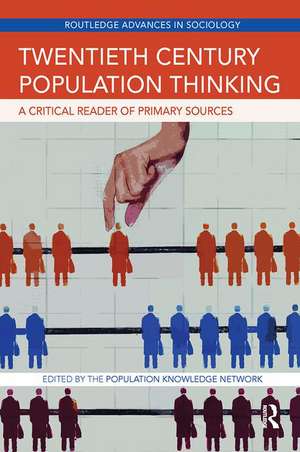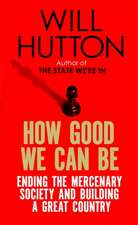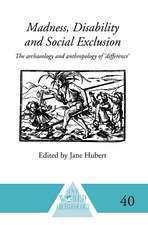Twentieth Century Population Thinking: A Critical Reader of Primary Sources: Routledge Advances in Sociology
Editat de The Population Knowledge Networken Limba Engleză Paperback – 28 apr 2017
| Toate formatele și edițiile | Preț | Express |
|---|---|---|
| Paperback (1) | 445.56 lei 6-8 săpt. | |
| Taylor & Francis – 28 apr 2017 | 445.56 lei 6-8 săpt. | |
| Hardback (1) | 1062.62 lei 6-8 săpt. | |
| Taylor & Francis – 29 sep 2015 | 1062.62 lei 6-8 săpt. |
Din seria Routledge Advances in Sociology
-
 Preț: 385.11 lei
Preț: 385.11 lei -
 Preț: 152.39 lei
Preț: 152.39 lei -
 Preț: 309.12 lei
Preț: 309.12 lei - 20%
 Preț: 296.88 lei
Preț: 296.88 lei -
 Preț: 334.09 lei
Preț: 334.09 lei -
 Preț: 204.46 lei
Preț: 204.46 lei - 9%
 Preț: 865.99 lei
Preț: 865.99 lei -
 Preț: 310.81 lei
Preț: 310.81 lei -
 Preț: 326.40 lei
Preț: 326.40 lei -
 Preț: 311.41 lei
Preț: 311.41 lei - 8%
 Preț: 388.98 lei
Preț: 388.98 lei -
 Preț: 288.87 lei
Preț: 288.87 lei -
 Preț: 310.29 lei
Preț: 310.29 lei -
 Preț: 311.41 lei
Preț: 311.41 lei -
 Preț: 303.43 lei
Preț: 303.43 lei -
 Preț: 301.51 lei
Preț: 301.51 lei -
 Preț: 326.63 lei
Preț: 326.63 lei -
 Preț: 152.30 lei
Preț: 152.30 lei -
 Preț: 318.95 lei
Preț: 318.95 lei -
 Preț: 317.48 lei
Preț: 317.48 lei -
 Preț: 312.86 lei
Preț: 312.86 lei -
 Preț: 160.59 lei
Preț: 160.59 lei -
 Preț: 334.09 lei
Preț: 334.09 lei -
 Preț: 309.46 lei
Preț: 309.46 lei -
 Preț: 386.78 lei
Preț: 386.78 lei - 8%
 Preț: 388.92 lei
Preț: 388.92 lei -
 Preț: 310.60 lei
Preț: 310.60 lei -
 Preț: 309.99 lei
Preț: 309.99 lei -
 Preț: 310.51 lei
Preț: 310.51 lei -
 Preț: 283.77 lei
Preț: 283.77 lei -
 Preț: 312.28 lei
Preț: 312.28 lei -
 Preț: 295.10 lei
Preț: 295.10 lei - 8%
 Preț: 383.57 lei
Preț: 383.57 lei - 18%
 Preț: 1111.55 lei
Preț: 1111.55 lei -
 Preț: 445.38 lei
Preț: 445.38 lei - 18%
 Preț: 701.88 lei
Preț: 701.88 lei - 18%
 Preț: 1053.92 lei
Preț: 1053.92 lei - 18%
 Preț: 1002.36 lei
Preț: 1002.36 lei - 18%
 Preț: 1057.89 lei
Preț: 1057.89 lei - 16%
 Preț: 248.31 lei
Preț: 248.31 lei - 18%
 Preț: 1003.30 lei
Preț: 1003.30 lei - 18%
 Preț: 1109.21 lei
Preț: 1109.21 lei - 18%
 Preț: 998.56 lei
Preț: 998.56 lei - 18%
 Preț: 1061.22 lei
Preț: 1061.22 lei - 18%
 Preț: 1058.06 lei
Preț: 1058.06 lei - 18%
 Preț: 1002.36 lei
Preț: 1002.36 lei - 18%
 Preț: 1113.12 lei
Preț: 1113.12 lei
Preț: 445.56 lei
Nou
Puncte Express: 668
Preț estimativ în valută:
85.25€ • 89.02$ • 70.40£
85.25€ • 89.02$ • 70.40£
Carte tipărită la comandă
Livrare economică 15-29 aprilie
Preluare comenzi: 021 569.72.76
Specificații
ISBN-13: 9781138061361
ISBN-10: 1138061360
Pagini: 246
Ilustrații: 60
Dimensiuni: 156 x 234 mm
Greutate: 0.36 kg
Ediția:1
Editura: Taylor & Francis
Colecția Routledge
Seria Routledge Advances in Sociology
Locul publicării:Oxford, United Kingdom
ISBN-10: 1138061360
Pagini: 246
Ilustrații: 60
Dimensiuni: 156 x 234 mm
Greutate: 0.36 kg
Ediția:1
Editura: Taylor & Francis
Colecția Routledge
Seria Routledge Advances in Sociology
Locul publicării:Oxford, United Kingdom
Public țintă
Postgraduate and UndergraduateCuprins
1. Statistics, Nationhood and the State, Axel C. Hüntelmann 2. Colonial Demography: Discourses, rationalities, methods, Samuël Coghe and Alexandra Widmer 3. Organizations and Networks of Population Thinking in the First Half of the Twentieth Century, Ursula Ferdinand and Petra Overath 4. Population in Space: Migration, geopolitics, and urbanization, Christiane Reinecke 5. Family, Sexuality, and Gender, Heinrich Hartmann and Corinna R. Unger 6. Population Problems in Modernization and Development: Positions and practices, Maria Dörnemann and Teresa Huhle 7. Contraceptive Technologies, Jesse Olszynko-Gryn 8. Natural Resources, Environment, and Population, Thomas Robertson
Notă biografică
The Population Knowledge Network was established in 2011 with support from the Deutsche Forschungsgemeinschaft (German Research Foundation).
Its goal is to study the history of demography in the twentieth century through a double lens: the lens of the history of knowledge and science together with the lens of social and political history. One of the network's main interests lies in the production, transfer, and application of demographic knowledge across geographic, cultural, social, and time differences, especially with regard to the interdependence between demography and politics.
Our interest is based on the assumption that knowledge is produced in specific cultural and social contexts and that knowledge and scholars contribute to defining, and thus creating, social problems. Studying the history of demography, an academic discipline characterized by its close proximity to politics, promises valuable insights into this phenomenon.
Second, the history of demography, which has been written only in part so far, deserves systematic attention because of its genuinely transnational character. Demography as an academic discipline and demographic knowledge evolved as products of transnational networks and discourses, which is supposedly reflected in its methods and approaches.
Analyzing the history of demography as a transnational process should allow insight into the functioning of expert networks, the possibilities and limits of transferring knowledge, and the relation between national and transnational structures and developments. Third, the role and effects of demographic knowledge outside of Europe and the West need to be studied in greater detail, especially with regard to the relation between development politics and the Cold War. All three inquiries need to take seriously the genuinely interdisciplinary character of demography.
Its goal is to study the history of demography in the twentieth century through a double lens: the lens of the history of knowledge and science together with the lens of social and political history. One of the network's main interests lies in the production, transfer, and application of demographic knowledge across geographic, cultural, social, and time differences, especially with regard to the interdependence between demography and politics.
Our interest is based on the assumption that knowledge is produced in specific cultural and social contexts and that knowledge and scholars contribute to defining, and thus creating, social problems. Studying the history of demography, an academic discipline characterized by its close proximity to politics, promises valuable insights into this phenomenon.
Second, the history of demography, which has been written only in part so far, deserves systematic attention because of its genuinely transnational character. Demography as an academic discipline and demographic knowledge evolved as products of transnational networks and discourses, which is supposedly reflected in its methods and approaches.
Analyzing the history of demography as a transnational process should allow insight into the functioning of expert networks, the possibilities and limits of transferring knowledge, and the relation between national and transnational structures and developments. Third, the role and effects of demographic knowledge outside of Europe and the West need to be studied in greater detail, especially with regard to the relation between development politics and the Cold War. All three inquiries need to take seriously the genuinely interdisciplinary character of demography.
Recenzii
'The book goes well beyond presenting annotated primary sources. In addition to the general introduction, there are eight highly informed essays, complete with historiographical clarifications and selected bibliographies for further reading.'
Cahen Fabrice, Population 2017/1 (Vol. 72)
Cahen Fabrice, Population 2017/1 (Vol. 72)
Descriere
This reader provides a comprehensive overview of the history of demography and historical perspectives on "population" in the twentieth century. It presents primary sources from all over the globe, covering a wide range of actors and historical situations. Organized into eight thematic sections, the reader provides rich information for students and scholars interested in learning about the different fields of population thinking.










